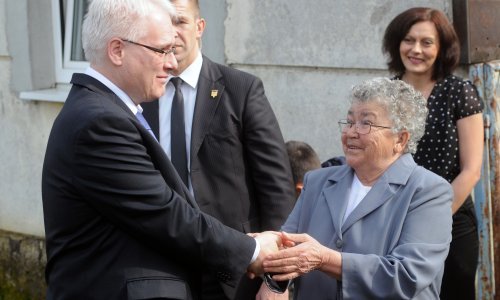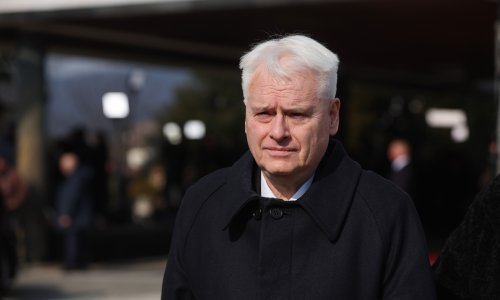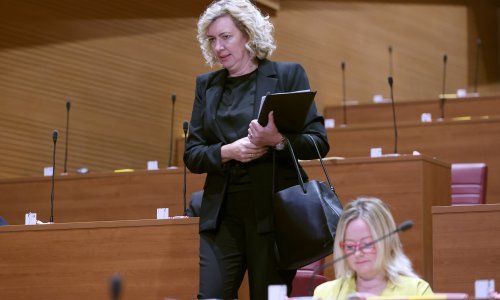Croatia must implement the necessary reforms regardless of the process of its accession to the European Union, which is nearing completion even though a lot of work remains to be done, Croatian President Ivo Josipovic and European Commission President Jose Manuel Barroso said in Brussels on Friday.
"The weaknesses that we have in agriculture and shipbuilding are primarily our own internal weaknesses which have not been dealt with for years. The reforms that must be implemented in agriculture and shipbuilding must be undertaken regardless of when we will join the EU, and they would have to be implemented even if we were not joining the EU. I had spoken earlier about problems in the system of government incentives, which were not given to producers, and that must change," Josipovic said after the talks with Barroso.
Speaking of the shipbuilding sector, Josipovic said the task of making shipbuilding sustainable had stood before several previous governments, but they failed to tackle it.
"I am confident that the process of privatisation will be carried out and that it must be carried in such a way to protect workers from losing their jobs. The government is responsible for ensuring social security for citizens," Josipovic said.
European Commission President Barroso said that reforms were necessary regardless of whether a country was an EU member or not.
Croatia is in Europe, it wants to have access to the European market which is governed by certain rules that must be respected and which apply to all member-countries. Croatia is not being discriminated against, quite the contrary, we support Croatia in its efforts to join the EU, Barroso said.
He underlined that Croatia's joining the EU under fast-track procedure was possible, but also very demanding.
So far, good progress has been made, but the set benchmarks must be met. Good signals are coming from Croatia and I welcome President Josipovic's commitment to the fight against corruption, Barroso said.
He added that it was necessary to have concrete results in the fight against corruption.
Underlining the importance of having good relations with neighbouring countries and of cooperating in the European spirit, Barroso said he hoped Croatia would continue making the necessary steps in order to overcome the remaining challenges, including continuing judicial and public administration reform, respect for minority rights, and full cooperation with the Hague war crimes tribunal, which he said was important for the policy chapter Judiciary and Fundamental Rights.
Nobody has been spared the global economic crisis, but it is very important for Croatia to continue with structural reforms so that it could be competitive on the European market, he said.
Barroso also thanked Josipovic for his constructive position on Bosnia-Herzegovina.
Josipovic said the future of Bosnia-Herzegovina must be based on the equality of the country's three constituent peoples.
"As regards Bosnia-Herzegovina, the biggest challenge to good neighbourly relations is the acceptance of the principle that the country's future will be what the three peoples agree on. It is important that equality does not stop only with those ethnic groups, but expand onto individuals," Josipovic said.
Speaking of Croatia's interest in Bosnia's stability, Josipovic said that one could not ignore the fact that a significant number of Croats live in Bosnia-Herzegovina, and that their number had declined since the 1990s war, which he said proved that previous policies were not good.
"There are different opinions among the Croat people in Bosnia-Herzegovina as to how Bosnia-Herzegovina should be organised, and local politicians should not leave current problems to be dealt with by generations to come. Croatia can help, first by respecting Bosnia-Herzegovina's sovereignty, but also by helping the Croat people adopt a single position, of course without imposing its own views," the Croatian president said.



































